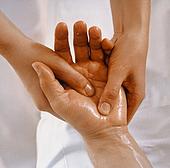What are the Side Effects of Taking DHEA, Positive or Negative?
Question for Dr. Leia: Is it wise to take DHEA, if a person has developed rheumatoid arthritis? Would the side effects of taking DHEA be positive or negative?
Dr. Leia’s Answer: DHEA research has not been shown to be helpful for rheumatoid arthritis. One disease, however, which is helped by supplementing DHEA is the autoimmune disorder called systemic lupus erythematosis.
DHEA improves the quality of life for lupus patients by decreasing the fatigue levels, and helping with the mental and thought processes in the brain of these patients.
Even though DHEA is readily available over the counter in health food stores, supermarkets, and pharmacies, it should not be taken randomly without first having a blood test to check for its deficiency, and it should not be taken without medical supervision.
DHEA or dehydroepiandrosterone, is a steroid hormone which is produced mainly by the adrenal gland. It is a precursor to androgens, or male hormones such as testosterone. Therefore, supplementing with DHEA can also affect the levels of testosterone and other androgen hormones in the body.
DHEA levels decline naturally with age, and at 80 years old levels may dwindle to only about 10% of normal levels found in young adults. There really haven’t been enough large studies on DHEA to verify the fantastic claims which are currently made for this hormone nor the side effects of taking dhea if you don’t need it, therefore it should not be used without proper medical guidance and proper blood testing to check for its deficiency.
It is dangerous to supplement with a hormone if the levels of that hormone in the body are already normal that is why it is always wise to visit your naturopathic doctor to discern which supplements might be best suited for your body’s specific needs.
Dr. Leia Melead
DHEA – Learn More About the Side of Effects of DHEA – Positive and Negative?
Norman Shealy reports in his book that as we age, the levels of certain hormones decline and this is especially the case with DHEA. After the age of thirty, with around a fifty-percent decline by age of forty, and about an eighty-five percent decline by the time we enter our seventies.
You may want to read the book: DHEA: The Youth And Health Hormone, By Norman Sheal
In his book he shares a twelve year study which took 240 men who were between fifty and seventy-nine years of age. They discovered that DHEA levels correlated with their mortality rate — for all causes including heart disease. Therefore, researchers noted that DHEA levels offer a standard diagnostic predicator of disease, life span, and mortality.
Further testing on animals is currently underway and if it holds true DHEA just may be a promising supplement to extend human life span.
Dhea may well hold an key to
health and wellness. Most healthy people have adequate levels of Dhea. Most unhealthy people do not.
In this book Dr. Shealy describes his findings on the subject, drawing on thirty years of patients.



